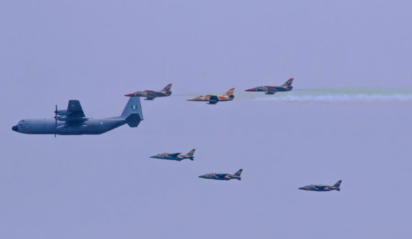Every Independence Day, articles and analysis of Nigeria’s failure to industrialize, our overreliance on oil, bad governance, corruption, insecurity, poor development indices etc. abound. Nigeria is a potent mix of missed opportunities and mischievous individuals who capitalize on human suffering to sell their brand of manipulation and hatred, further trapping us in a cycle of poverty and violence.

Nearly everyone believes it is impossible to win an electoral contest in Nigeria based on the strength of one’s ideas due to the public demand for “stomach infrastructure” which leads to vote buying etc. Those who mean well for Nigeria must find a middle ground between frankly inacceptable conduct and a means of getting work done for the benefit of all. Let us not fool ourselves, with Nigeria’s current level of corruption and indiscipline, where many children and young people, inheritors of our decadent society have already begun to endorse wrong doing to the point of finding many new ways of competing with (and surpassing) their elders in rascality, we cannot change the system through naïve, moralizing optimism alone, which is the specialty of many commentators.
In short, to make an omelet, one must break a few eggs. Nigerians (and our leaders) hide behind so-called good intentions and wishful thinking therefore preventing change: we continue to believe (because it’s easier and more comforting) that we can fight and win the battle against the monsters holding this country hostage without seriously revamping, and rethinking our tactics. As a student of comparative politics, I studied the many pathways to democracy.
It has become clear to me that in the current hostage situation Nigeria finds itself in, one of economic sabotage, terrorism and insecurity funded by people who believe they own this nation, significant change will continue to elude us unless we are ready to not only do things differently but adopt a more radical approach.
Let us take the example of the fight against corruption. We continue to ask government to respect the so-called human rights of those accused of defrauding us to the tune of billions of US dollars which would have prevented, for example, the recent flooding across the nation, curbed desertification (and therefore prevented the deadliest aspects of the herdsmen/farmers clash) or simply educated the millions of young men and women who through lack of opportunity and options to live a decent life become the willing tools of agents of violence and destruction. We defend the human rights of such individuals yet we have no regard for the rights of all those whose suffering is caused by their failures.
We cannot continue to subsidize some people’s greed (the FIRS must again be commended for bringing “billionaire tax evaders” into the tax net), or to invest so heavily in their comfort and satisfaction while doing next to nothing to satisfy the basic aspirations of everyday people. It’s a radical idea or proposition, in Nigeria, to say, for example, that because our national assembly earns too much we should work on rebalancing their dues, because this arm of government literally “eats” too much of our scarce resources, to the point that government cannot afford, in a country as rich as Nigeria, to increase the minimum wage. Everything that aims to provide more benefits for the average person in Nigeria is treated as a radical supposition, a near impossibility for this or that manufactured reason.
Class based conflicts and interests ruin this country just as much as our brand of blind, bitter, partisan politics whereby everything becomes a a zero-sum game: if one side wins, the other must definitely lose. We are tolerant of the presumed rights of some people to commit crimes when it benefits whatever tribal, religious or flimsy excuse we are willing to give them, and refuse this same strange tolerance to those who either attempt to fix the system or are victims of its deficiencies. We constantly make enemies of the wrong people in Nigeria: we are hypnotized by people who have no concept of public good, who pit us against each other all too easily, who’re successfully entrenched in the power their “divide and rule” strategy procures them.
As a long term strategy, we must try something truly radical: we must finally teach our citizens, starting with our children, that our identities are plural. One can be male or female, Igbo, Yoruba, Hausa, a laborer, a lawyer or whatever other profession and a Nigerian. W’ve favoured the idea that our identities must compete: identities compete first within ourselves (“who am I and what am I ready to do to survive in Nigeria”) then amongst each other (“it is my turn, not theirs to benefit from the system”).
We need to resist these dangerous thoughts and promote, through education and public awareness, a more redemptive ideology, one which ascribes less importance to tribal, ethnic and religious belonging and focuses more on individual choice: who do we wish to be? I have said many times in this column that until we free ourselves from zoning arrangements, state of origin and federal character, we will never have the Nigeria of our dreams where meritocracy, justice, fairness and development for all are the order of the day. We need a country where one can live, work, pay taxes and aspire to anything (be it local or federal office) based on the strength of one’s ideas and capacity to bring tangible progress to citizens of this country. So long as we are viewed as Muslims, Christians, Northerners, Easterners etc. who compete for benefits based on “zoning”, we won’t make significant progress. Our ethno-religious diversity is neither a problem or a danger if we choose to manage it differently. Those who understand this must fight their way into office and do what they must to survive. It is also possible not to lose yourself entirely (through compromise), if we accept that to fight the monstrosities we have allowed to take over, one must skillfully join them to beat them.
CAN
The President of the Christian Association of Nigeria, Samson Ayokunle, says the association will train 300 electoral observers to monitor the 2019 elections. “INEC on its part must strive to remain as an impartial umpire because what we have seen in the last two elections in Ekiti and Osun States left much to be desired due to complaints of intimidation of party agents, vote buying and violence,” he said. One must ask: is CAN neutral? During the Jonathan Presidency, CAN acted like an extension of the PDP and never criticized the alleged rigging that went on in states like Ekiti. How interesting for it to find its voice under Buhari. We are tolerant of wrongdoing only when it favours us in Nigeria.
Curious absence of NASS principal officers
Senate President Bukola Saraki and Speaker of the House of Representatives, Yakubu Dogara, were both absent from the Eagle Square, Abuja yesterday where Nigeria’s 58th Independence anniversary parade was held. Many Nigerian politicians find it difficult to put ego and politics aside. We often refuse to do what’s best for the country or what’s best for the systems of governance we claim to want to institute, in favour of sending our own personal message. Messrs. Saraki and Dogara, having left the APC the way they did, probably felt uncomfortable to attend this event with the President. Does this mean there shall be no work or contact between the Executive and NASS till the elections? One would imagine that when a person takes a decision, he or she would have the courage to stand by it and to do what is right. Not in Nigeria, where politics trumps national unity every day. The Senate President’s media aide, Yusuph Olaniyonu said his principal was in Kwara attending the gubernatorial primary and preparing for the PDP convention. I suppose it is now time to say goodbye to any form of governance, intelligent discourse and national unity: election season is upon us.
Tabia Princewill is a strategic communications consultant and public policy analyst. She is also the co-host and executive producer of a talk show, WALK THE TALK which airs on Channels TV.
Source: https://www.vanguardngr.com/2018/10/nigeria-at-58-are-we-ready-to-try-something-more-radical/


